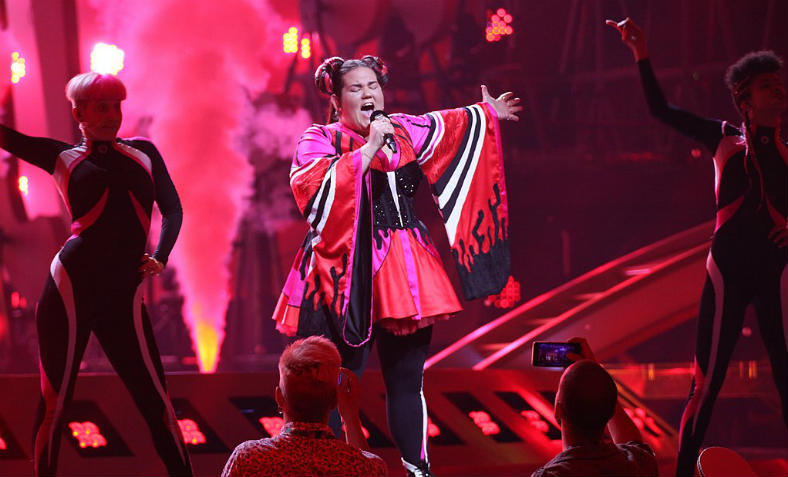 Israel's winning Eurovision performer Netta Barzilai performs at the contest on 12 May 2018. Photo: Wikimedia Commons
Israel's winning Eurovision performer Netta Barzilai performs at the contest on 12 May 2018. Photo: Wikimedia Commons
With the contest taking place in Tel Aviv this year, we must supercharge campaigners’ demands for a full boycott, argues Dave Randall
It may not be the highlight of every music lover’s year, but the annual Eurovision Song Contest is certainly big. Nearly 200 million viewers from around the world tune in to see singers and their songs battle it out for the top spot. It’s no wonder, therefore, that Israel’s political strategists saw Netta Barzilai’s victory last year as a propaganda coup. As Palestinian LGBTQ activists described in an open statement:
“Following her Eurovision win for Israel, Barzilai has willingly taken on the role of cultural ambassador for Israeli apartheid, using pop music to keep Israel’s ongoing denial of Palestinian human rights out of mind. As part of this propaganda effort, Barzilai is supporting the Israeli government’s pinkwashing agenda, the cynical campaign to use LGBT rights to shield itself from criticism of its decades-old oppression of Palestinians.”
Barzilai’s victory means that this year’s final, which takes place on 18 May, will be hosted by Israel. So far as opportunities for pinkwashing go, this is a dream ticket for the Israeli government. Our urgent task is to amplify Palestinian demands for a boycott of the event, ensuring that truth and justice become the real winners on the night, with Israeli apartheid being awarded the political equivalent of ‘nul points’. To do that effectively we must explain where the call for cultural boycott has come from and why it is so important.
In 2005, 170 Palestinian civil society groups including trade unions, women’s organisations, community groups and NGOs voted overwhelmingly to issue a call for a boycott of Israeli institutions including a cultural boycott. That call remains in place, and is campaigned for by the Palestinian Boycott National Committee. It is also supported by Israeli activists including the group Boycott From Within.
In 2010 the band Faithless, with whom I played guitar, declined offers to play in Israel, joining the boycott in solidarity with the Palestinians. Prior to the call being issued Faithless did perform in Israel – once at a rave on a beach south of Tel Aviv and again at a music festival in Haifa. I saw with my own eyes that going to Israel and saying progressive things from the stage did nothing to improve the situation for Palestinians. On the contrary, despite our efforts, the gigs may well have had the net effect of distracting fans from the political situation – of ‘art-washing’ apartheid – and appearing more widely to be an endorsement of ‘business as usual’ in the apartheid state.
The cultural boycott, and the wider Boycott, Divestment, Sanctions (BDS) movement, by contrast, is having a positive impact. This non-violent political tactic relies on international solidarity and has already helped draw attention to Israel’s numerous violations of international laws and the misery inflicted on Palestinians. Indeed it has been so effective that the Israeli government recently resorted to passing legislation criminalising any endorsement of BDS. Clearly, they are rattled. We must keep the pressure on. To coincide with the final, ‘Not The Eurovision – Parties for Palestine’ and similar events will be held in cities across Europe including London, and activists are planning a coordinated social media campaign in the coming weeks. We should all get involved to make sure that on 18 May, apartheid is judged unacceptable, and the vision of a better world is the one left in people’s minds.

